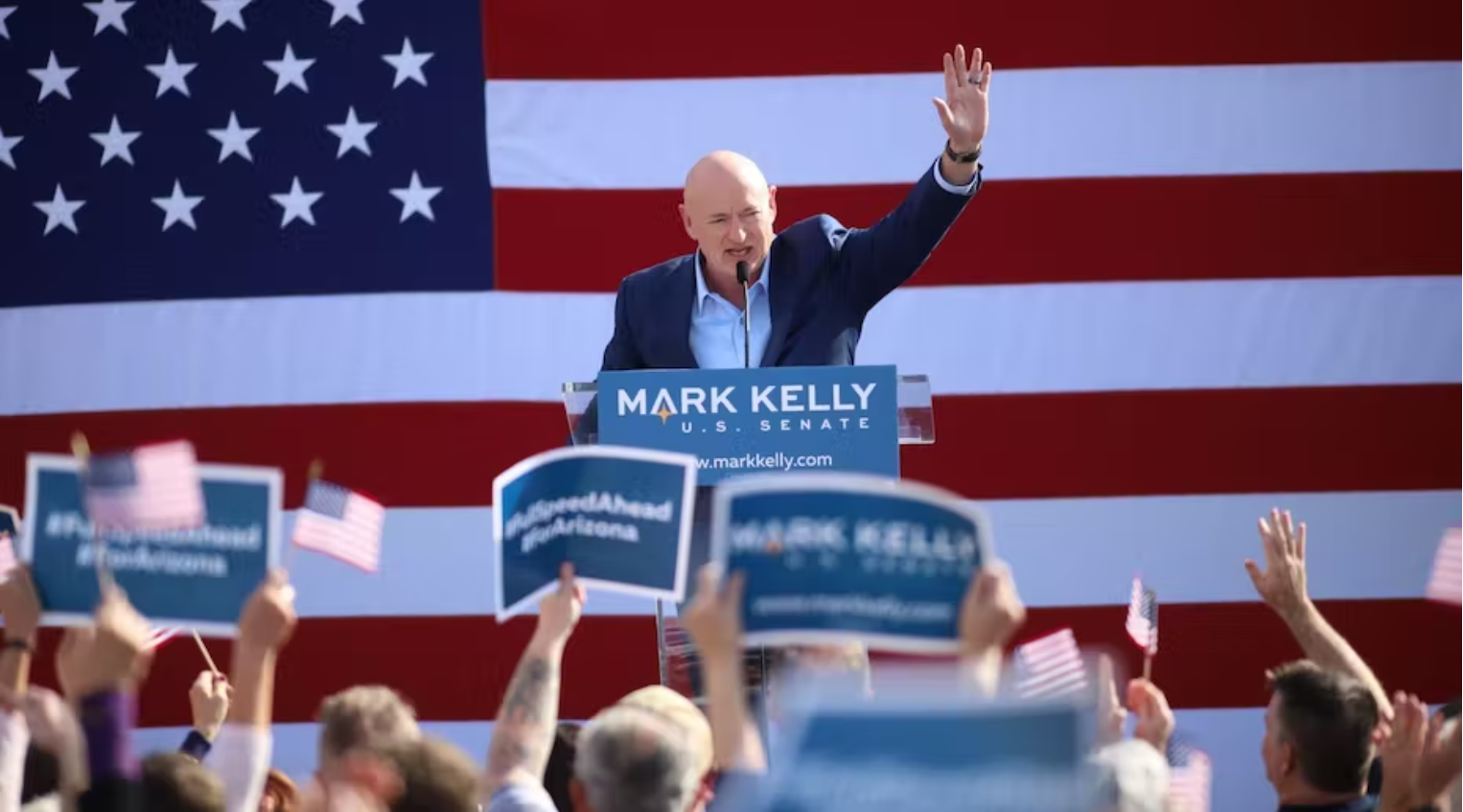SITUATION
Like every other Democratic candidate running in a swing state, Senator Mark Kelly faced formidable challenges in 2022. The President drew sharp criticism, inflation raged, crime rates jumped, and Arizona took center stage in the immigration crisis. Early polling suggested a tight election.
Most observers recognize Mark Kelly’s politically-compelling background—husband of former Congresswoman Gabby Giffords, combat pilot, NASA astronaut—but are less familiar in his talent as an elected leader. Kelly conveys a sincerity that is rare in today’s politics. Focus group participants invariably use the word “genuine” in reacting to the Senator.
Blake Masters, a tech entrepreneur and first-time candidate, owed his nomination to the generosity of billionaire Peter Thiel and his unqualified fealty to Donald Trump. The candidate himself—according to focus groups participants—presented as arrogant and extreme.
The campaign aimed to make this election a referendum on the character of these two candidates, more than a referendum on the status quo.
SOLUTION
The campaign decided early on that Kelly should carry the positive message and worked to keep him in front of voters for most of the year. This enabled the campaign to effectively reintroduce his bio and independent approach, , while also showing the bipartisan work he was doing on key Arizona issues like jobs, inflation, and the border.
As the Republican primary unfolded and Masters began to emerge as the likely nominee, the campaign also decided to let Blake Masters carry his own negatives. Most ads against Masters used his own words—on video and audio—to make the case against him. This step accomplished two things. First, it overcame voters’ skepticism of negative ads Second, it magnified the contrast in quality and character between Mark Kelly and Blake Masters.
After Masters won the primary, the Kelly campaign and its independent allies confronted the Masters’ campaign with a surge of negative ads, using Masters’ own image and words on abortion, Social Security and Medicare, and the military to sink his approval rating., The Masters’ campaign had scarce resources after a brutal primary, and his independent allies squabbled over who would carry his message. We had a brief near-monopoly in communication that the campaign capitalized on. Within those two weeks, Masters’ negatives jumped to 48 percent.
Masters never really recovered from this period and carried a negative rating near 50 percent into the last week of the campaign.
Other factors also played a role. Voters in this libertarian-oriented state are staunchly pro-choice and Masters’ extreme language on this issue was particularly offensive to swing voters. The candidate contrast on this issue allowed Kelly to run up huge margins among younger voters and college educated women. The Kelly campaign also invested a historic amount of money and time into outreach to the Hispanic community, including developing separate Spanish language advertising tracks both positive and negative,. Despite Republican attempts to make inroads, Kelly held on to his strong 2020 margin with this community.
By the time all the votes were counted, Kelly won with a nearly five-point margin. Kelly won with a higher margin than in 2020, in part because his campaign made the right strategic choices at the right time. He also won because the gulf in quality between these two candidates. Even in a “bad” Democratic cycle, these differences were clear to voters and his campaign amplified that disparity.

